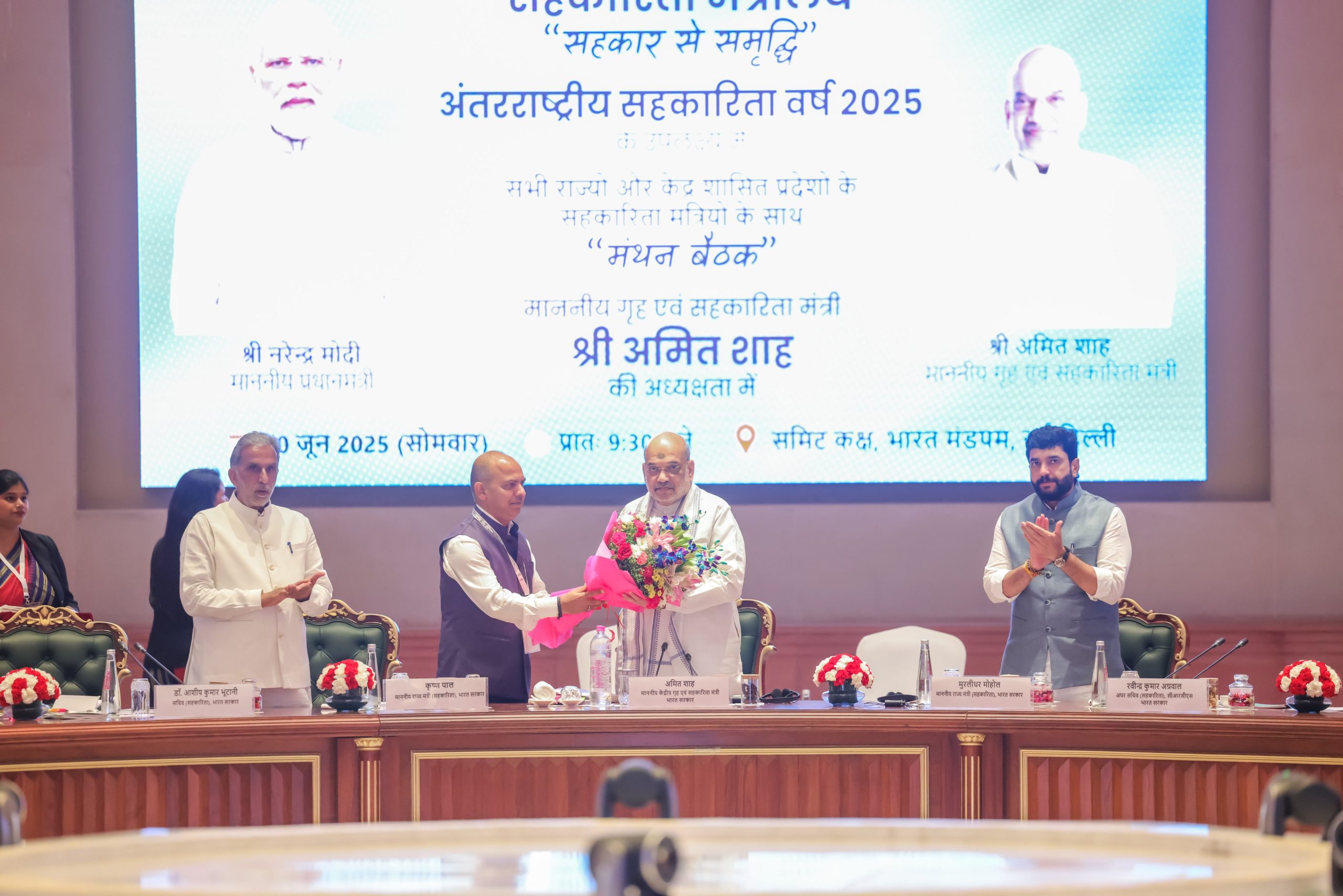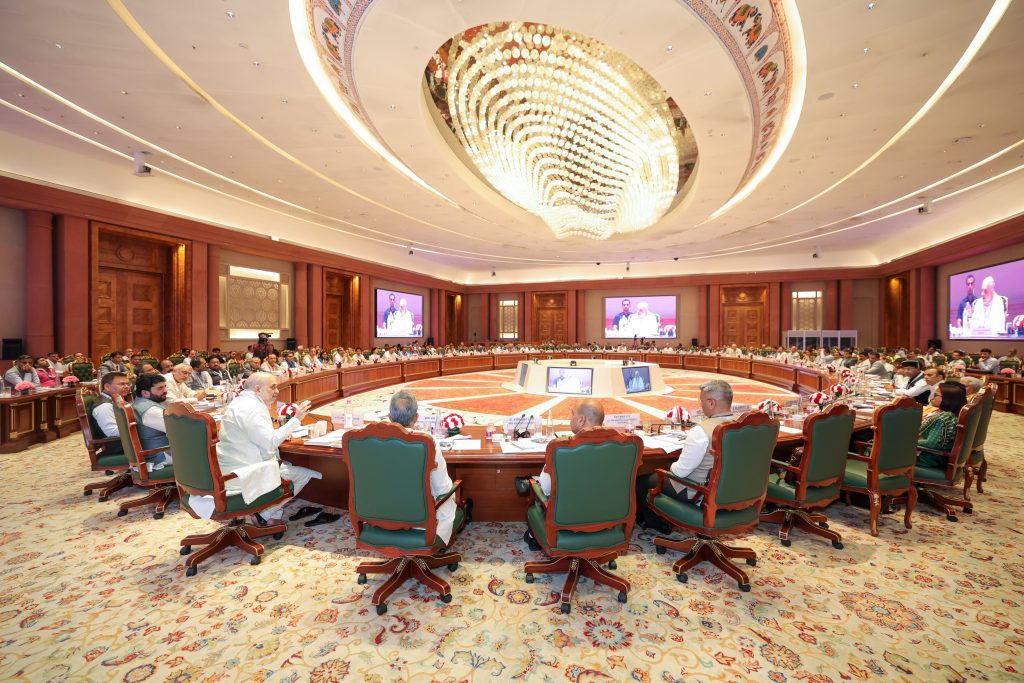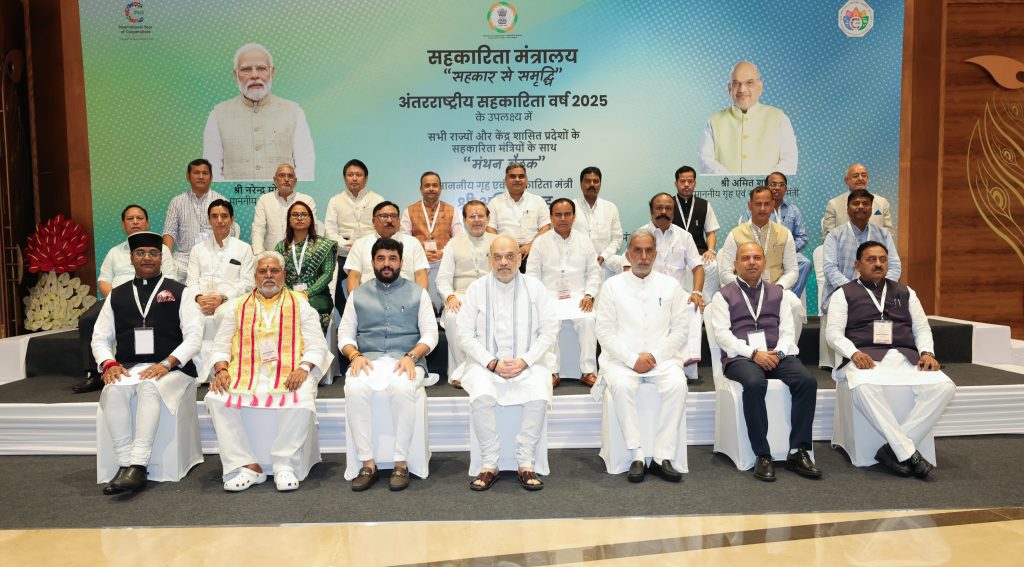Union Home Minister and Minister of Cooperation, Amit Shah, chaired a “Manthan Baithak” with Cooperation Ministers from all States and Union Territories in New Delhi on Monday. The meeting was organised to commemorate the International Year of Cooperatives (IYC) 2025 and was hosted by the Ministry of Cooperation.
In his address, Shah said that Prime Minister Narendra Modi established the Ministry of Cooperation to revive India’s long-standing tradition of cooperation while addressing present-day needs.
Highlighting the transformative work done over the past decade, Shah said, “When the Modi government came to power in 2014, nearly 60 to 70 crore people lacked basic facilities and had lived for generations in scarcity. In ten years, the government has provided housing, toilets, drinking water, food grains, healthcare, gas cylinders, and other essential facilities to crores of people.”
He added that those who had benefited now aspired to become entrepreneurs but lacked sufficient capital. “For them, cooperation is the only way to do meaningful work with their limited resources,” he said, stressing that cooperation is vital for employment generation in a country of 140 crore people.
Shah emphasised the need to revitalise cooperation for the welfare of small farmers and rural communities, noting that the sector holds vast potential. “With sensitivity, we must bring cooperation back to life,” he said.
He also shared that the Government of India has launched 60 initiatives to ensure that every citizen secures employment and lives with dignity. One key step, he said, is the creation of the National Cooperative Database to identify gaps and ensure that every village has at least one cooperative institution. “Our goal is that within five years, there should not be a single village in the country without a cooperative,” Shah said.
He pointed out three main reasons for the weakening of the cooperative movement in the past: outdated laws, lack of expansion, and nepotism in recruitments. “The Modi government has amended the laws and conceived the idea of the Tribhuvan Sahkari University to train cooperative personnel,” he said. He urged every state to establish at least one cooperative training institution affiliated with the Tribhuvan Sahkari University to strengthen the training system.
Shah said that a new National Cooperative Policy will be introduced soon, covering the period from 2025 to 2045, leading up to the centenary of India’s independence. He said, “Under this policy, each state will prepare its own cooperative policy according to local needs and conditions. Every state should announce its cooperative policy before January 31, 2026.”
He also called for discipline, innovation and transparency in the sector through the Model National Cooperative Policy Act. Stressing the importance of timely implementation, he said the target of setting up two lakh Primary Agricultural Credit Societies (PACS) for the financial year 2025–26 must be achieved by February next year.
“Now that cooperative banks come under the Banking Act, and the Reserve Bank of India has shown flexibility, remaining issues can only be resolved if we run these banks transparently and recruit staff based on merit,” he said, underlining the need for transparency in Credit Cooperative Societies and Urban Cooperative Banks.
Promoting natural farming was another key area of focus. Shah urged all State Cooperation Ministers to work with their Agriculture counterparts to encourage natural farming, which, he said, would benefit both public health and the environment.
He further said that ‘Cooperation Amongst Cooperatives’ has been a proven and successful model in Gujarat and should be replicated nationwide. “This initiative is crucial for building national capacity and strengthening cooperatives across India,” he added.
The meeting also discussed progress on setting up two lakh Multi-Purpose Primary Agricultural Credit Societies (M-PACS) and the promotion of dairy and fisheries cooperatives to boost rural service delivery. The implementation of the world’s largest grain storage scheme in the cooperative sector was reviewed in detail.












